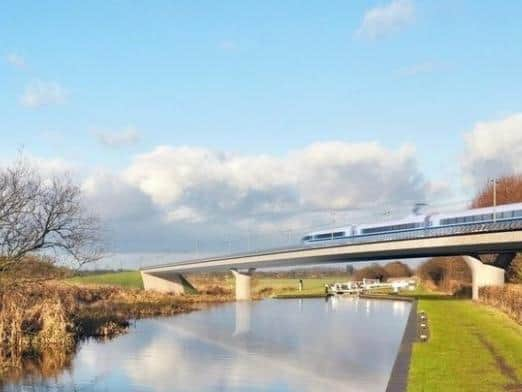LETTER: HS2 - freight expectations unjustified
and live on Freeview channel 276
It has been reported that the best justification for HS2 going ahead is now to remove freight from UK roads. This is the latest in a series of arguments to justify HS2. The first was speed – you could get to London 30 minutes quicker, increasing productivity.
No-one had taken into account that you can work on mobile devices while travelling so that excuse was quickly buried in favour of the need for capacity. The capacity argument was always tenuous but it was completely debunked by the Covid pandemic.
Advertisement
Hide AdAdvertisement
Hide AdSo now it has shifted again to freight. If you are building a £100bn-plus railway and you have to keep changing the reason for doing it, it is a safe bet that it is a bad idea! The freight argument falls apart completely when you consider that HS2 is a high-speed railway. Freight doesn’t need high speed, so why introduce extra high-speed capacity?


Does it matter that it is high speed? Yes it does, a lot! If the railway wasn’t high speed it would be far cheaper to build.
A high-speed track cannot bend, which explains why it is causing huge environmental damage and wrecking the quality of life for thousands of people along the route. It can’t avoid valuable land and property so the acquisition costs in a densely populated island like ours are sky high.
It will also use at least three times as much electricity as a lower speed railway which is part of the reason why it won’t be net carbon neutral for at least 120 years.
Advertisement
Hide AdAdvertisement
Hide AdThe real motivation for HS2 has always been to help London’s issue with affordable housing by turning northern cities like Leeds into domiciles for commuters, sucking jobs into the capital. In the North, it is supported by local civic leaders who only focus on investment in city centres and ignore the damage to the wider areas.
Andrew Hardy, Wakefield